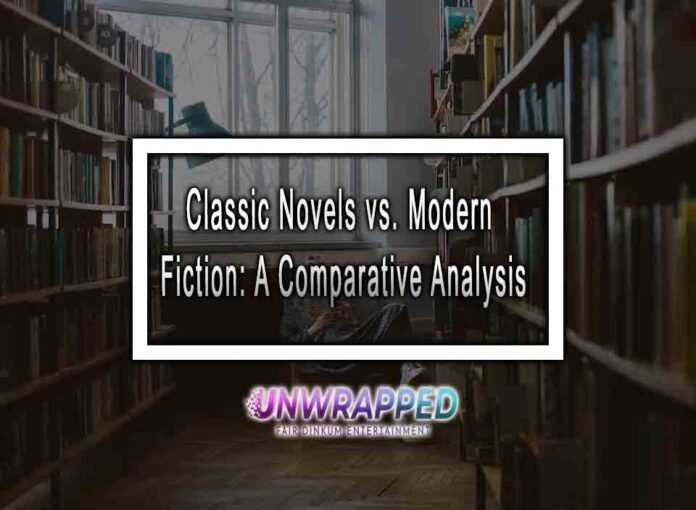Unraveling the Pages: A Journey through Literary Time
Classic novels and modern fiction have captivated readers for centuries, offering unique perspectives on the human experience. Whether you’re a devoted bookworm or a casual reader, exploring the differences between these two genres can be an enlightening adventure. Join us as we embark on a comparative analysis of classic novels and modern fiction, delving into their distinct qualities, themes, and impact on literary culture.
1. The Timeless Allure of Classic Novels
Classic novels have stood the test of time, leaving an indelible mark on literary history. These revered works often transport readers to different eras, immersing them in richly detailed worlds with meticulously crafted characters.
2. The Emergence of Modern Fiction
Modern fiction represents a departure from the traditional structures and themes found in classic novels. With the rise of postmodernism and contemporary writing styles, modern fiction offers a fresh and dynamic take on storytelling.
3. Themes and Subjects Explored
While classic novels tend to delve into themes of morality, societal norms, and personal growth, modern fiction explores a wide range of subjects, including identity, technology, and cultural diversity.
4. Writing Style and Language
Classic novels often feature formal and descriptive prose, showcasing a mastery of language that reflects the time in which they were written. In contrast, modern fiction embraces more informal and experimental writing styles, incorporating colloquial language and unconventional narrative techniques.
5. Influence on Literary Culture
Classic novels have shaped the literary canon, serving as touchstones for future generations of writers. They have inspired countless adaptations and continue to be revered for their enduring impact. Meanwhile, modern fiction pushes the boundaries of storytelling, reflecting the evolving tastes and sensibilities of contemporary readers.
The Legacy Continues: Celebrating Diversity in Literary Expression
Classic novels and modern fiction each possess their own distinct charms, offering readers a tapestry of experiences and perspectives. While classic novels provide a timeless connection to the past, modern fiction pushes the boundaries of literary innovation. As we celebrate the rich tapestry of literature, let us embrace both the classics and the contemporary, cherishing the diversity of voices that shape our literary landscape.
Uncover: Definitive Guide on the History of Dystopian Literature











